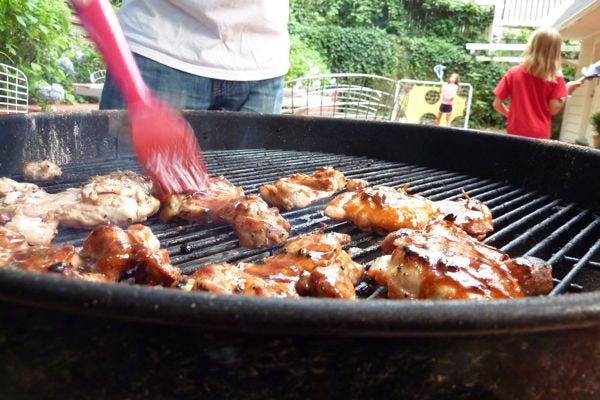Eating Chicken, Solving Problems

After a rambling conversation this morning on the way to camp that began with how digital media is taking over print, and how -- according to Abby -- maybe this means that trees are being saved, but how -- according to Phoebe -- discarded electronics account for a massive percentage of the waste in landfills, and then, naturally, to Wall-E, there was a…




